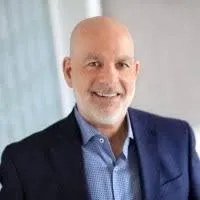Revolutionizing Workplace Efficiency
Where Strategy Meets Innovation
Empowering businesses to thrive with tailored solutions and expert insights for a smarter, more productive future.
50+
Clients Helped
15+
Industries Served
20+
Years Experienced
100+
Workshops Delivered
50+
Clients Helped
1 5+
Industries Served
20+
Years Experienced
100+
Workshops Delivered
What we offer
Our Solutions
Helping businesses thrive with strategies that prioritize people and drive sustainable success.
Value Builder
We help owner stuck in the day to day of their business, by providing them a step-by-step roadmap to gain the freedom you deserve
Leadership
We help organizations develop leaders at every level, by offering customized leadership programs driving lasting value
Talent Management
We help leaders develop their team through structured systems so you can achieve peak team performance
Operational Performance
We help manufacturers and individuals eliminate waste by guiding the implementation of Lean practices to create lasting value
About Us
Driving Success
Through People
Unison helps organizations and individuals grow. We focus on organizational health, which places people at the heart of an organization’s strategic vision and serves as the philosophy behind the process we use to help our clients improve their performance.

20+
Years Experience

The Pillars of Our Commitment
Helping businesses thrive with strategies that prioritize people and drive sustainable success.
Our Mission
Help companies advance by fostering their employees’ professional growth in order to maximize their results.
Our Vision
To place people at the center of an organization’s strategic vision, enabling sustainable improvements and future success.
Our Values
We prioritize integrity, continuous learning, humility, proactivity, and ambition to drive meaningful change.
Ready to Build a Stronger, More Resilient Business?
Join our community to access expert advice, actionable insights, and practical strategies to help your team and organization thrive.
Latest Insights
Stray Informed with Our Expert Blog

Time to reflect
Reflecting on leadership, business growth, and succession—how humility and strategic focus shape a sustainable future. ...more
Blogs
June 13, 2022•2 min read

Working as an employee in a family business that your dad owns (Part 3)
Navigating succession in a family business requires strategic planning—follow this ongoing journey of ownership transition. ...more
Blogs
May 24, 2022•3 min read

Test or personality inventory. What’s the difference?
Discover how the MPO personality inventory stands out from other psychometric tools by focusing on motivation, adaptability, and precision. ...more
Blogs
February 16, 2022•2 min read
Our Team
Marc-André Alary
CEO
About Marc-André
For more than 20 years, Marc-André has dedicated himself to helping companies and their employees grow. Marc-André is recognized by his clients for his ability to listen effectively and his practical approach to complex situations. He works tirelessly to implement the concept of organizational health in different types of manufacturing environments. Outside of his work, Marc-André is passionate about personal growth, whether through experience or education.
Christian Alary
Project Leader
About Christian
Christian first gained experience in a manufacturing plant where he delved into multiple aspects of business, including, but not limited to, human resources management, inventory management, finance, process improvement, and strategic planning. After his stint in manufacturing, Christian joined the team in January 2021 and is dedicated to helping small and medium-sized businesses—at the heart of any community—improve.
Marc Bernier
Project Leader
About Marc
A project leader at Unison since 2014, Marc specializes in training and process improvement. In his role as a trainer, whether with a group of managers or production floor employees, in a manufacturing or administrative context, he adapts to technical topics as needed, including Lean Six Sigma or interpersonal topics such as talent management or change management. In his process improvement approach, he always seeks to push the boundaries and challenge you to think critically. He then takes that information to design practical and innovative solutions to mobilize your entire team.
Our Team

Marc-André Alary
CEO
For more than 20 years, Marc-André has dedicated himself to helping companies and their employees grow. Marc-André is recognized by his clients for his ability to listen effectively and his practical approach to complex situations. He works tirelessly to implement the concept of organizational health in different types of manufacturing environments. Outside of his work, Marc-André is passionate about personal growth, whether through experience or education.

Christian Alary
Project Leader
Christian first gained experience in a manufacturing plant where he delved into multiple aspects of business, including, but not limited to, human resources management, inventory management, finance, process improvement, and strategic planning. After his stint in manufacturing, Christian joined the team in January 2021 and is dedicated to helping small and medium-sized businesses—at the heart of any community—improve.

Marc Bernier
Project Leader
A project leader at Unison since 2014, Marc specializes in training and process improvement. In his role as a trainer, whether with a group of managers or production floor employees, in a manufacturing or administrative context, he adapts to technical topics as needed, including Lean Six Sigma or interpersonal topics such as talent management or change management. In his process improvement approach, he always seeks to push the boundaries and challenge you to think critically. He then takes that information to design practical and innovative solutions to mobilize your entire team.

Martine Richard
Director of Business Development
Martine joins Unison with several years of experience in business development (B2B). Martine started her career as a Supply Chain Analyst at HockeyShot, Account Director at Trip Data and Safety Management, Business Development Representative for Black & McDonald, Sales Representative for Big Erics and finally Marketing Associate at Sysco Atlantic.
Martine holds a bachelor’s degree from the Université de Moncton in operations management, which will serve her well in the industry we operate in.
In her spare time, Martine is a sports enthusiast and is a spinning instructor for Spin North in Bathurst. Martine speaks French and English.
Our Clients








Choose Your Package
Lorem ipsum dolor
Lorem ipsum dolor sit amet, consectetur adipiscing elit.
Starter Kit
Basic Package
$xxx
Monthly
- A ante donec congue consectetuer
- Tellus dis cursus tincidunt
- Massa luctus ullamcorper augue
- Rhoncus dictumst
- Leo montes nibh at
*Convallis pretium ornare fringilla
Starter Kit
Basic Package
$xxx
Monthly
- A ante donec congue consectetuer
- Tellus dis cursus tincidunt
- Massa luctus ullamcorper augue
- Rhoncus dictumst
- Leo montes nibh at
*Convallis pretium ornare fringilla
Starter Kit
Advance Package
$xxx
Monthly
- A ante donec congue consectetuer
- Tellus dis cursus tincidunt
- Massa luctus ullamcorper augue
- Rhoncus dictumst
- Leo montes nibh at
*Convallis pretium ornare fringilla
Why Choose Us
Empowering Businesses To Thrive.
Experienced Mentor
Nisl congue fusce lectus tempus porta hendrerit risus ultricies phasellus nunc nisi
Experienced Mentor
Nisl congue fusce lectus tempus porta hendrerit risus ultricies phasellus nunc nisi
Experienced Mentor
Nisl congue fusce lectus tempus porta hendrerit risus ultricies phasellus nunc nisi
Testimonial
What They Say
Lorem ipsum dolor sit amet, consectetur adipiscing elit.
Consectetuer nisi si magnis erat ligula vulputate sit sapien duis integer. Cubilia class blandit dapibus phasellus eu dui fermentum amet. Dis dapibus porttitor ullamcorper turpis pharetra vestibulum auctor iaculis neque efficitur.


Jane Doe
Consectetuer nisi si magnis erat ligula vulputate sit sapien duis integer. Cubilia class blandit dapibus phasellus eu dui fermentum amet. Dis dapibus porttitor ullamcorper turpis pharetra vestibulum auctor iaculis neque efficitur.


Jane Doe
Consectetuer nisi si magnis erat ligula vulputate sit sapien duis integer. Cubilia class blandit dapibus phasellus eu dui fermentum amet. Dis dapibus porttitor ullamcorper turpis pharetra vestibulum auctor iaculis neque efficitur.


Jane Doe
Phone: (506) 850-6537
Email: [email protected]
Business Hours: Monday to Friday, 8 am - 5 pm
Office: 105 Englehart Street, Suite 400 Dieppe, NB E1A 8K2
Subscribe to our newsletter!

